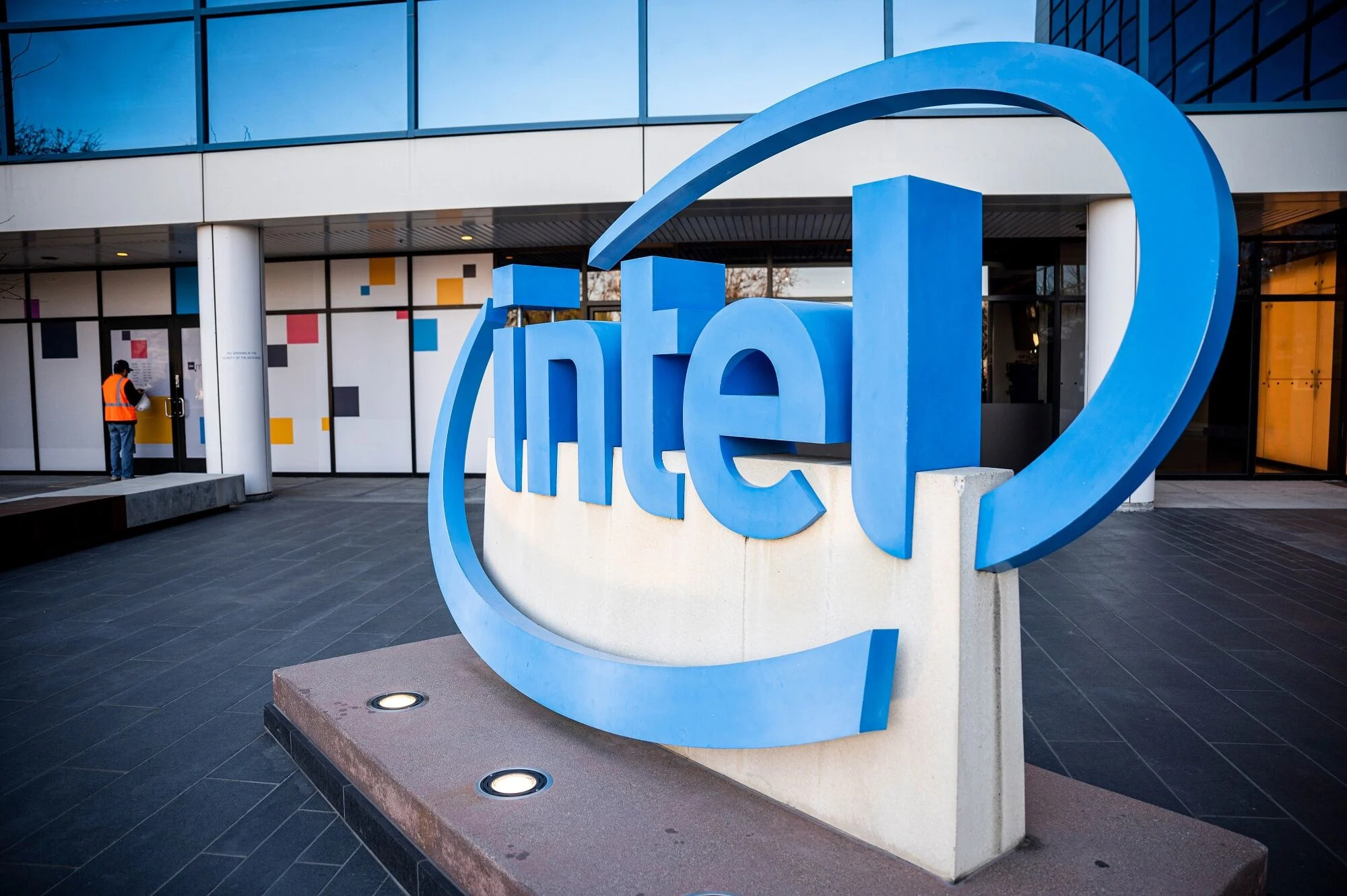Intel, Qualcomm say exports to China blocked as Beijing objects

Intel said on Wednesday its sales would take a hit after the U.S. revoked some of the chipmaker's export licenses for a customer in China, in a move Beijing complained was going too far in the name of national security.
Intel did not disclose the name of the Chinese customer that had licenses canceled in its filing with the Securities and Exchange Commission, but Reuters had reported on Tuesday the U.S. has revoked licenses that allowed companies, including Intel and Qualcomm, to ship chips used for laptops and handsets to sanctioned Chinese telecoms equipment maker Huawei Technologies.
The release of Huawei's first AI-enabled laptop in April, the MateBook X Pro powered by Intel's new Core Ultra 9 processor, drew fire from Republican lawmakers, who said it suggests that the Commerce Department had given the green light to Intel to sell the chip to Huawei.
Intel's shares were down 2.9% at $29.80 on Wednesday afternoon after the company said it expects revenue for the second quarter to remain in the range of $12.5 billion to $13.5 billion, but below the midpoint. Intel shares have lost nearly 38% so far this year.
Qualcomm also said on Wednesday that one of its export licenses for Huawei had been revoked; its shares were flat.
Get AfriPrime Android Web View app....Click the link to Amazon app store to download https://rb.gy/3xek46
"Huawei is a threat," Commerce Secretary Gina Raimondo told Reuters after a congressional hearing on Wednesday, adding that the move was not a change in policy.
"Maybe we have an increased focus on AI. And so when we learn more about AI capabilities, that's when we have to take action," she said. "So if a chip that we previously licensed for example, now we discover had AI capabilities, we're going to revoke the license."
The Chinese foreign ministry, which has criticized every effort by the U.S. to crack down on tech exports to China, said in a statement it opposed the move and that the U.S. was "over-stretching the concept of national security and abusing export controls to suppress Chinese companies without justification."
The United States placed Huawei on a trade restriction list in 2019 amid fears it could spy on Americans, part of a broader effort to handicap China's ability to bolster its military. Joining the list means the company's suppliers have to seek a special, difficult-to-obtain license before shipping.
The new restrictions on Huawei are President Joe Biden's latest effort to deny China access to the United States' most sensitive and sophisticated “crown jewel” technology in a bid to thwart Beijing.
Biden has used export bans, diplomacy with like-minded democracies and other means to stifle China’s swift technological advances in areas from quantum computing to robotics, and even explained the strategy to Chinese leader Xi Jinping as a new normal in an era of competition between two nations with different political systems.
Intel Sees Revenue Falling Below Midpoint on US Huawei Ban
Intel Corp. expects second-quarter revenue to fall below the midpoint of previously issued projections because of a new US ban on chip exports to Huawei Technologies Co.
Revenue will remain within the previously guided range of $12.5 billion to $13.5 billion, Intel said in a statement Wednesday, “but below the midpoint.” The company said it continues to expect revenue and earnings per share to grow in 2024 from a year earlier.
On Tuesday, the US revoked licenses allowing Huawei, a Chinese telecommunications giant blacklisted by the US, to buy semiconductors from Intel and rival Qualcomm Inc., according to people familiar with the matter, further tightening export restrictions against the Chinese telecom equipment maker. Withdrawal of the licenses affects US sales of chips for use in Huawei phones and laptops, said the people, who discussed the move on condition of anonymity.
While the decision may not affect a significant volume of chips, it underscores the US government’s determination to curtail China’s access to a broad swath of semiconductor technology. Officials are also considering sanctions against six Chinese firms that they suspect could supply chips to Huawei, which has been on a US trade restrictions list since 2019.
Get AfriPrime Android Web View app....Click the link to Amazon app store to download https://rb.gy/3xek46
Intel shares extended declines in premarket trading, falling 2.5% to $29.91. Shares of Qualcomm and rival chipmakers Advanced Micro Devices Inc. and Nvidia Corp. also fell in early trading following Intel’s announcement.
Qualcomm recently said that its business with Huawei is already limited and will soon shrink to nothing. It has been allowed to supply the Chinese company with chips that provide older 4G network connections. It’s prohibited from selling ones that allow more advanced 5G access.
Huawei has been tangled up in a web of US restrictions for years in response to concerns that its technology could be used by Beijing as a spy tool.
- Questions and Answers
- Opinion
- Story/Motivational/Inspiring
- Technology
- Art
- Causes
- Crafts
- Dance
- Drinks
- Film/Movie
- Fitness
- Food
- Jogos
- Gardening
- Health
- Início
- Literature
- Music
- Networking
- Outro
- Party
- Religion
- Shopping
- Sports
- Theater
- Wellness
- News
- Culture
- War machines and policy


